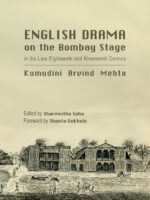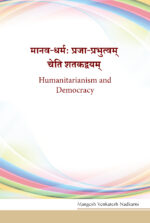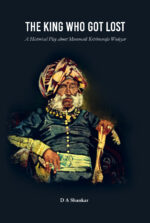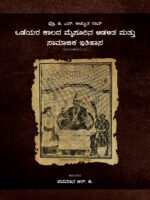Phedra
₹180.00
Translator: Madhava Chippalli
ರಾಸೀನ್ನ ಫೀದ್ರಾ ನಾಟಕವು ಪಾಶ್ಚಿಮಾತ್ಯ ನಾಟಕ ಸಾಹಿತ್ಯದಲ್ಲೇ ಒಂದು ಆಯಕಟ್ಟಿನ ಕೃತಿ. ಗ್ರೀಕ್ ಮತ್ತು ಎಲಿಜಬೆಥನ್ ನಾಟಕಗಳಲ್ಲಿ ಕಾಣಸಿಗದ ಹೊಸ ಬಗೆಯ ಮನೋಲೋಕವೊಂದನ್ನು ತನ್ನ ಪಾತ್ರಗಳಿಗೆ ಧಾರಣೆ ಮಾಡಿಸಿದ ಈ ನಾಟಕವು ಆ ಮೂಲಕವೇ ಈ ಪರಂಪರೆಯಲ್ಲಿ ಮನೋವಿಜ್ಞಾನಕ್ಕೆ ಒಂದು ಖಾಯಂ ಸ್ಥಾನವನ್ನು ಒದಗಿಸಿಕೊಟ್ಟಿತು. ಮುಂದೆ ಬಹುತೇಕ ಪಾಶ್ಚಿಮಾತ್ಯ ನಾಟಕಗಳು ಈ ಪರಂಪರೆಯನ್ನು ಮುಂದುವರಿಸಿದವು; ರಂಗಭೂಮಿಯಲ್ಲೂ ಮನೋಲೋಕವನ್ನು ಮುಂದಕ್ಕೆ ತರುವ ವಿಭಿನ್ನ ಪ್ರಯೋಗಗಳಿಗೆ ಈ ಪರಂಪರೆಯು ಚಾಲ್ತಿ ನೀಡಿತು. ಈ ಸಂಪ್ರದಾಯಕ್ಕೆ ವಿರೋಧಿಯಾದ ಫ್ರಾನ್ಸಿನ ಪ್ರಸಿದ್ಧ ರಂಗಕರ್ಮಿ ಆಂತೋನಿನ್ ಆರ್ತೋನ ಮಾತುಗಳನ್ನು ಕೇಳುವುದಾದರೆ, ಪಾಶ್ಚಿಮಾತ್ಯ ರಂಗಭೂಮಿಯಲ್ಲಿ ‘ಸೈಕಾಲಜಿಯ ದುರ್ಬೀಜ’ ಬಿತ್ತಿದ ಕೃತಿ ಇದು! ಹಾಗಿರುವುದರಿಂದ, ನಾವು ಈ ನಾಟಕವನ್ನು ಹೇಗೇ ಓದಲಿ, ಓದದೆ ಇದ್ದರೆ ಅಷ್ಟರ ಮಟ್ಟಿಗೆ ಪಾಶ್ಚಾತ್ಯ ನಾಟಕ ಸಂಪ್ರದಾಯದ ಅರಿವು ಅಪೂರ್ಣ. ಅಂಥ ಪ್ರಮುಖ ನಾಟಕವೊಂದು ಇನ್ನೂ ಕನ್ನಡಕ್ಕೆ ಬಾರದೆ ಉಳಿದಿತ್ತು; ಆ ಲೋಪವನ್ನು ಈ ಅನುವಾದವು ಸಮರ್ಥವಾಗಿಯೇ ತುಂಬಿಸಿದೆ. ಮೂಲದ ನಿಷ್ಠೆಯೊಂದಿಗೆ ಭಾಷಾಗಾಂಭೀರ್ಯ ಮತ್ತು ಮಾತಿನ ಸುಭಗತೆ ಎರಡನ್ನೂ ಒಟ್ಟಿಗೇ ಹಿಡಿಯಲು ಯತ್ನಿಸಿರುವ ಈ ಅನುವಾದವನ್ನು ನಾನು ತುಂಬು ಮನಸ್ಸಿನಿಂದ ಸ್ವಾಗತಿಸುತ್ತೇನೆ.
Interested readers may write to us at mup@manipal.edu about purchasing the book.
| Categories: | Kannada, Plays and Theatre, Texts in Translation |
|---|
| Format | |
|---|---|
| Author |
Related products
-
English Drama on the Bombay Stage in the Late Eighteenth and Nineteenth Century
₹570.00Author: Kumudini Arvind Mehta Editor: Sharmishta Saha
Theatre in Mumbai or colonial Bombay emerged at a time when the city was still finding its own contours and taking shape. “Theatre” in the sense of the art form and the word that we know today, which has been comfortably incorporated in almost all Indian languages also took shape during this early period. Kumudini Arvind Mehta’s doctoral dissertation, submitted to the University of Bombay, now known as University of Mumbai is being published in the form of this book. It navigates the journey of “theatre” starting with the early “amateur theatre” at Bombay Green in the late eighteenth century. Today we know this area as the Horniman Circle in Mumbai. She traces the origins of professional theatre in colonial Bombay to the amateur exercises of the English inhabitants, the Parsi businessmen and the English educated local inhabitants of the city. She painstakingly goes through newspaper articles and announcements, old journals, property papers, old maps etc., to weave the narrative of “theatre” that shapes the legacy of the art form that was either inherited or rejected by later artists. Mehta’s work is significant not only for the study of “theatre” but also to understand colonial sociability and the role of the English language in this regard. Sharmistha Saha, the editor of the book has given it its present shape. She has primarily updated citations, incorporated information on current research as also images of the erstwhile theatre districts wherever applicable.
Interested readers may write to us at mup@manipal.edu about purchasing the book.
-
Nanna Parni Shaale
₹290.00Author: Thakur S Powdyel Translator: N T Bhat
ನನ್ನ ಪರ್ಣ ಶಾಲೆ ಠಾಕೂರ್ ಎಸ್ ಪಡೆಯಲು ಅವರು ಇಂಗ್ಲಿಷಿನಲ್ಲಿ ರಚಿಸಿದ ಪುಸ್ತಕದ ಕನ್ನಡ ಅನುವಾದ, ಭೂತಾನ್ ರಾಜ್ಯದಲ್ಲಿ ರಾಷ್ಟ್ರವ್ಯಾಪಿಯಾಗಿ ಅಳವಡಿಸಲಾದ ಶಿಕ್ಷಣ ಯೋಜನೆಯನ್ನು ಪೌಡಿಯಲ್ “ಮೈ ಗ್ರೀನ್ ಸ್ಕೂಲ್” ಎಂಬ ಹೆಸರಿನಲ್ಲಿ ವಿವರಿಸಿದ್ದಾರೆ. ಮೂಲದ ಇಂಗ್ಲಿಷ್ ಶೀರ್ಷಿಕೆ ಹೊಂದಿಕೊಳ್ಳುವಂತ ಈ ಅನುವಾದಕ್ಕೆ ಪರ್ಣ ಶಾಲೆ ಎಂಬ ಶೀರ್ಷಿಕೆಯನ್ನು ನೀಡಲಾಗಿದೆ. ವಿದ್ಯಾರ್ಥಿ ವ್ಯಕ್ತಿತ್ವ ವನ್ನು ಸರ್ವಾಂಗೀಣ ವಾಗಿ ರೂಪಿಸುವ ಉದಾತ್ತ ಧೈರ್ಯವನ್ನು ಶಿಕ್ಷಣವು ಹೊಂದಿರಬೇಕೆಂಬುದನ್ನು ಈ ಪುಸ್ತಕದಲ್ಲಿ ಗಂಭೀರವಾಗಿ ಪ್ರತಿ ಪಾದಿಸುತ್ತಾರೆ. ಮನುಷ್ಯನು ಪ್ರಕೃತಿಯೊಂದಿಗೆ ತಾದಾತ್ಮ್ಯ ಭಾವವನ್ನು ಹೊಂದಿಕೊಳ್ಳುವುದು ಸರ್ವಾಂಗೀಣ ವ್ಯಕ್ತಿತ್ವದಲ್ಲಿ ಆಂತರ್ಗತವಾಗಿದೆ. ಶಿಕ್ಷಣಕ್ಕೆ, ಶಿಕ್ಷಣ ಸಂಸ್ಥೆಗಳಿಗೆ ಈ ಲಕ್ಷ್ಯವೂ ಇರಬೇಕೆಂಬುದು ಸ್ವತಸ್ಸಿದ್ದ. ಈ ನಿಟ್ಟಿನಲ್ಲಿ ಉದಾತ್ತ ಶಿಕ್ಷಣ ನೀಡುವ ಶಾಲೆಯನ್ನು ಗ್ರೀನ್ ಸ್ಕೂಲ್ ಎಂದು ಕರೆಯುವುದು ಸರ್ವಥಾ ಸ ರಿ. ಅಂತೆಯೇ ಈ ಶಿಕ್ಷಣ ನೀತಿಯನ್ನು ಭಾರತದಲ್ಲೂ ವ್ಯಾಪಕವಾಗಿ ಅಳವಡಿಸುವುದು ಅಪೇಕ್ಷಣೀಯ.
Also available on

eBook available on

-
Kannada Theatre History 1850-1950: A Sourcebook
₹250.00Edited by: Akshara K V with B R Venkataramana Aithala, Deepa Ganesh
This source book on Kannada theatre history is a valuable contribution to the larger field of Indian Theatre Studies. Avoiding the shortcuts of an overview or a Wikipedia-like assemblage of information, it delves into the lives, histories, struggles, debates and anecdotes surrounding some of the most pioneering figures in the shaping of Kannada theatre between 1850-1950. The selection of primary sources, most of which are being made available in English for the first time, is nothing short of a revelation in the way it illuminates insights into the actual making and thinking of theatre practice. Here we have a model of how the construct of ‘Indian Theatre’ can be textured, inflected, individuated and problematized at regional, local and intracultural levels. Rustom Bharucha .This book is a labour of love by scholars who not only love Kannada theatre, but want to pass on their enjoyment of it. Delving deep into folklore oral history, local history, gossip debate and discourse, the editors bring out the world of Kannada theatres in pluralistic terms. Scholarship and playfulness combine to create a powerful act of storytelling where the book itself mimics the career of Kannada theatre. As an anthology it becomes an initiation rite, an introduction to all the great figures, not as hagiography but as nuanced analysis. Big questions and little questions combine to create both a sense of combativeness and a wonderful feeling of homecoming. Like tricksters, they break the binaries of tradition and modernity, treating it almost like a bad play which needs new scripts and new performers. A wonderful anthology. A deeply desi book, with all the cosmopolitanism of world theatre.
Interested readers may write to us at mup@manipal.edu about purchasing the book.
-
Humanitarianism and Democracy (Maanava Dharmah – Prajaaprabhutvam Cheti Shatakadvayam)
₹240.00Author: M V Nadkarni
These Satkarnas are Prof Nadkarni’s passionate plea for an authentic democratic order which guarantees the rights of every citizen while each citizen participates in it being fully aware of his / her duties. The complementarity of rights and duties is shown to be the essence of genuine democracy.
Interested customers may write to us at mup@manipal.edu about purchasing the book.
Also available on

-
The King Who Got Lost: A Historical Play about Mummadi Krishnaraja Wodeyar
₹200.00Young Mummadi, put on the throne by the British after the last Mysore war in 1799, was brought up under the watchful guidance of the far-sighted and shrewd Dowager Maharani Lakshmammanni. After falling into the hands of the powerful and politically experienced Dewan Purnaiah, he had a tortuous and tortured life. The young prince was never able to outgrow the influence of two of these mentors. To add to this, Mummadi, fell prey to an easy and rather voluptuous life. He was married but in addition to his many wedded consorts, he was caught in the spying and quarrelsome domestic life. Mummadi could never, despite valiant efforts, free himself and grow into a self-confident king.
The pressures of the ruthless British administration and the local, disruptive, and rebellious chieftains made Mummadi’s life a sad, tragic tale bordering on the ridiculous and the pathetic.
Interested overseas customers may write to us at mup@manipal.edu about purchasing the book.
-
Wodeyara Kaalada Mysurina Adalitha matthu Saamajika Ithihasa
₹600.00Author: Pavamana R D, D S Achuta Rao
ವಿಜಯನಗರ ಸಾಮ್ರಾಜ್ಯದ ಉತ್ತರಾಧಿಕಾರಿಗಳೆಂದು ಹೆಸರಾಗಿರುವ ಮೈಸೂರಿನ ಒಡೆಯರು ಕರ್ನಾಟಕದ ಇತಿಹಾಸಕ್ಕೆ ನೀಡಿದ ಕೊಡುಗೆ ಅನನ್ಯವಾದುದು. ರಾಜಕೀಯ ರಂಗದಲ್ಲಿ ಮಾತ್ರವಲ್ಲದೆ, ಸಾಂಸ್ಕೃತಿಕ, ಸಾಹಿತ್ಯಿಕ ಹಾಗೂ ಕಲಾರಂಗಗಳಲ್ಲೂ ಮೈಸೂರು ಅರಸರು ವಿಜಯನಗರದ ಶ್ರೇಷ್ಠ ಪರಂಪರೆಯನ್ನು ಮುಂದುವರೆಸಿದರು. ರಾಜಒಡೆಯರ್, ರಣಧೀರ ಕಂಠೀರವ, ಚಿಕ್ಕದೇವರಾಜ ಒಡೆಯರ್ ಅವರ ಆಳ್ವಿಕೆಯ ಕಾಲಘಟ್ಟದಲ್ಲಿ ಮೈಸೂರು ಸರ್ವಾಂಗೀಣ ಪ್ರಗತಿ ಸಾಧಿಸಿತು. ಈ ವಂಶದ ಮೊದಲ ಪ್ರಮುಖ ಅರಸು ರಾಜ ಒಡೆಯರ್ರಿಂದ ಆರಂಭಿಸಿ ಮೈಸೂರು ಆಂಗ್ಲರ ಅಧೀನವಾಗುವವರೆಗಿನ ಆಡಳಿತ ಹಾಗೂ ಸಾಮಾಜಿಕ ಇತಿಹಾಸ ಇಲ್ಲಿದೆ. ಮೈಸೂರು ಸಂಸ್ಥಾನದ ಎರಡು ಮಹತ್ವಪೂರ್ಣ ಶತಮಾನಗಳ ಕಾಲದ ಆಡಳಿತ, ಕಂದಾಯ ನೀತಿಗಳು, ನ್ಯಾಯಾಡಳಿತ, ಸೈನ್ಯ ವ್ಯವಸ್ಥೆ, ಪ್ರಾಂತೀಯ ಹಾಗೂ ಸ್ಥಳೀಯ ಆಡಳಿತ, ಸಾಮಾಜಿಕ ಜೀವನ ಹಾಗೂ ಧರ್ಮ, ಶಿಕ್ಷಣ, ಸಾಹಿತ್ಯ, ಕಲೆ ಮತ್ತು ವಾಸ್ತುಶಿಲ್ಪ ಮತ್ತು ಆಸ್ಥಾನ ಸಂಸ್ಕೃತಿ ಹೀಗೆ ಬಹುಮುಖೀ ನೆಲೆಗಳ ವಿಸ್ತಾರವಾದ, ಅಧ್ಯಯನಪೂರ್ಣ ಸಂಶೋಧನಾ ವರದಿಯಾಗಿ ಇದು ಸ್ವಾತಂತ್ರೋತ್ತರ ತಲೆಮಾರಿನ ವಿದ್ವಾಂಸರ ಸಂಶೋಧನಾ ವೈಖರಿಗೆ ಒಂದು ಅತ್ಯುತ್ತಮ ಉದಾಹರಣೆ ಎನ್ನಬಹುದು. ಕರ್ನಾಟಕದ ಅದರಲ್ಲೂ ಮೈಸೂರಿನ ಒಡೆಯರ ಇತಿಹಾಸದ ಬಗೆಗೆ ಸಂಶೋಧನೆಗಳು ಇನ್ನೂ ಕಣ್ತೆರೆಯುತ್ತಿದ್ದ ಕಾಲದಲ್ಲಿ ಡಿ. ಎಸ್. ಅಚ್ಯುತರಾಯರ ಈ ಸಂಶೋಧನ ಕಾರ್ಯ ಮಹತ್ವಪೂರ್ಣವಾದುದು. ಅಂದಿಗೆ ಲಭ್ಯವಿದ್ದ ಎಲ್ಲಾ ಬಗೆಯ ಮೂಲ ಹಾಗೂ ಆನುಷಂಗೀಕ ಆಕರಗಳನ್ನು ಬಳಸಿಕೊಂಡು, ಸಂಶೋಧನೆಯ ಎಲ್ಲಾ ಚೌಕಟ್ಟಿನೊಳಗೆ ವಸ್ತುನಿಷ್ಠವಾಗಿ ರೂಫುಗೊಂಡಿದೆ ಈ ಕೃತಿ. ಸಾಮಾಜಿಕ ಇತಿಹಾಸವನ್ನು ಪುನರ್ ರೂಪಿಸುವಾಗಲಂತೂ ಸಮಕಾಲೀನ ಸಾಹಿತ್ಯದ ಎಲ್ಲಾ ರೂಪಗಳನ್ನೂ ಇಲ್ಲಿ ಬಳಸಿಕೊಳ್ಳಲಾಗಿದೆ. ಅಗತ್ಯ ವಿರುವೆಡೆಯಲ್ಲಿ ಒಂದಕ್ಕಿಂತ ಹೆಚ್ಚಿನ ಸಂಖ್ಯೆಯಲ್ಲಿನ ಉಲ್ಲೇಖಗಳು, ಟಿಪ್ಪಣಿಗಳೂ, ವಿವರಣೆಗಳೂ ಈ ಸಂಶೋಧನೆಯ ಮೌಲ್ಯವನ್ನು ಹೆಚ್ಚಿಸಿವೆ. ಸಂಶೋಧನೆಗೆ ಪೂರಕವಾಗಿ ಗ್ರಂಥಋಣ, ನಕ್ಷೆಗಳು, ಸಂಕ್ಷೇಪಾಕ್ಷರಗಳು ಹಾಗೂ ಒಡೆಯರ ವಂಶಾವಳಿ ನೀಡಲಾಗಿದೆ. ಆಧಾರಗಳ ಮೇಲಿನ ಟಿಪ್ಪಣಿಯು ಸಂಶೋಧಕರಿಗೆ ತಮ್ಮ ಕಾರ್ಯಕ್ಷೇತ್ರದ ಮೇಲಿನ ಒಡೆತನದ ದ್ಯೋತಕ. ಅಪಾರ ಸಂಖ್ಯೆಯ ಹಸ್ತಪ್ರತಿಗಳ ಮತ್ತು ಶಾಸನಗಳ ಬಳಕೆ ಈ ಕೃತಿಯ ಹೆಗ್ಗಳಿಕೆ.
Interested readers may write to us at mup@manipal.edu about purchasing the book.
-
Decolonial Existence and Urban Sensibility: A Study on Mahesh Elkunchwar
₹450.00Author: Sayan Dey
The book Decolonial Existence and Urban Sensibility: A Study on Mahesh Elkunchwar meticulously reflects upon some of the selected translated plays of Marathi playwright Mahesh Elkunchwar. It revolves around the themes of decolonial existence and urban sensibility in contemporary India as portrayed in his plays with respect to post-independent urban existence, socio-cultural existence and gender. The book also looks forward to establish a counterargument against the idealized and totalitarian definitions of West-centric existentialist philosophy, and establish indigenous dimensions of decolonial existence within specific contexts. It dismantles the colonially structured existing binaries of urban/rural, ethical/unethical and high culture/low culture through the diverse portrayal of human relationships in contemporary India and broadly addresses two inter-mingled perspectives. Firstly, it outlines the thematic and dramatic perspectives of the selected plays of Mahesh Elkunchwar and secondly, it explores the multi-dimensional philosophical perspectives that encapsulate the theoretical latitude of decoloniality and urban sensibility.
Interested readers may write to us at mup@manipal.edu about purchasing the book.
-
BAKA – Collection of Two Plays
₹340.00Author: M S Keshava Prabhu, Translator: L V Shantakumari
Baka dramatizes the episode of Bakasura, from the Indian epic, Mahabharata. Baka is a cannibal demon that terrorizes a village with its horrifying attacks. The king of the village strikes an agreement with the demon, putting its people in peril. They live in constant fear for years until the sudden arrival of a hero changes everything.
A theatrical and evocative narration, this play satirically mirrors society’s greed and irresponsibility. It depicts power struggles through the conflict that arises between Baka the demon, the cowardly king, and the oppressed people.Interested customers may write to us at mup@manipal.edu about purchasing the book.









